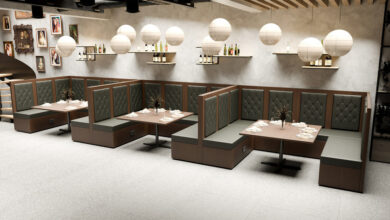Electric Radiators Explained: Energy-Efficient Comfort at Your Fingertips

As the world moves towards more sustainable energy solutions, homeowners are increasingly exploring alternative heating systems that offer both efficiency and convenience. One such trend that has gained immense popularity across the UK is the use of electric radiators. These modern heating solutions provide an opportunity to reduce energy consumption while maintaining comfort within the home. In this article, we will delve into the workings of electric radiators, their benefits, and how they compare with traditional heating systems.
Understanding Electric Radiators
Electric radiators are heating devices that use electrical energy to heat a space. They differ from traditional water-filled radiators as they do not require a central heating boiler or network of pipes. Instead, they plug into a standard electrical socket and convert electricity into heat, which is then radiated into a room.
The core component of an electric radiator is its heating element, typically made of aluminium or steel. This element quickly heats up when electricity flows through it, thanks to its high thermal conductivity. Some advanced models are filled with thermodynamic fluid to enhance heat distribution and retention.
Benefits of Using Electric Radiators
Electric radiators offer a host of benefits that make them an attractive option for homeowners seeking efficient heating solutions:
- Energy Efficiency: Electric radiators convert nearly 100% of the energy they use into heat, making them more efficient than some traditional heating systems. Many models also come with programmable thermostats and smart controls, allowing for precise temperature settings and energy savings.
- Easy Installation: Unlike conventional radiators, electric models do not require extensive plumbing work. They can be easily mounted on walls or used as freestanding units in areas where heating is needed.
- Flexibility: With electric radiators, you can heat individual rooms independently, providing zonal heating that can be tailored to your specific needs. This flexibility is particularly useful in homes where certain areas require more heat than others.
- Low Maintenance: These radiators have fewer moving parts compared to central heating systems, reducing the risk of leaks and the need for regular maintenance.
- Eco-Friendly Options: As awareness of environmental impact grows, electric radiators present an opportunity to use renewable energy sources, contributing to a reduced carbon footprint.
Comparing Electric Radiators with Traditional Systems
Traditional central heating systems, typically powered by gas or oil, require a network of pipes and radiators connected to a boiler. While these systems are effective at heating entire homes, they can often be less energy-efficient due to heat loss within the piping and the need to heat the whole house, regardless of individual room usage.
In contrast, electric radiators provide a more direct form of heating. They offer quick and responsive heating by converting electricity directly into heat, and the absence of a central boiler means there are fewer heat losses. However, electricity prices can be higher than gas or oil, which might affect running costs.
Conclusion
Electric radiators represent a modern approach to home heating, providing a blend of efficiency, flexibility, and ease of use. Their ability to offer zonal heating, combined with the lack of a need for complex installation and maintenance, makes them an ideal choice for many households. As technology continues to advance, these systems are likely to become even more efficient, making electric radiators a viable and sustainable heating solution for the future.
Whether you are looking to supplement your existing heating system or seeking a standalone solution for your home, understanding the benefits and capabilities of electric radiators can help guide your choice towards a more energy-efficient and comfortable living environment.




